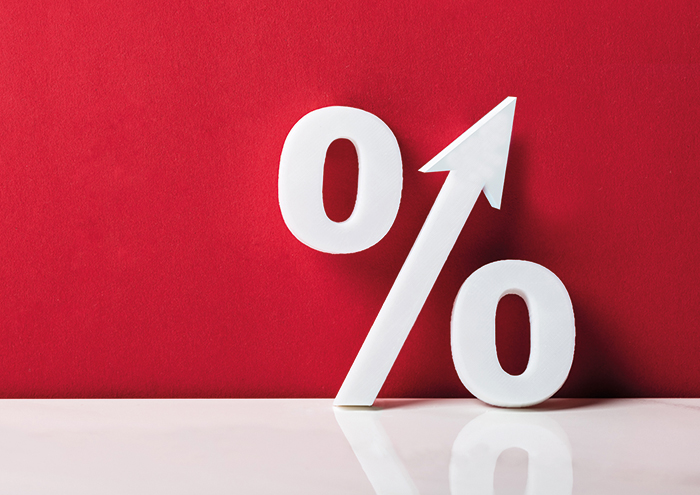
The Bank of England (BoE) could hike interest rates to 3% or 4% by the end of this year, some have predicted.
Speaking on BBC Radio 4, former MPC member Andrew Sentance says the BoE is falling behind and it might need to hike rates between 3% and 4% by the end of the year.
As the cost of living crisis continues, the Office for National Statistics (ONS) reported yesterday that inflation in the UK had reached 10.1% in July, setting a new 40-year record high.
The latest figure is driven by a 43.7% rise in the price of motor fuels year-on-year and an increase of 12.7% in food and non-alcoholic beverages.
Last month, the ONS reported inflation hitting 9.4% in June, rising from 9.1% in May.
The Bank of England (BoE) increased the base rate by 50 basis points to 1.75% on 4 August.
The increase marked the sixth base rate rise since December 2021 after a decade of historic lows. Interest rates are now at their highest since December 2008.
Speaking on what can be done if rates do reach 4%, Private Finance technical director Chris Sykes says: “One of the major things some people are doing if they have savings and if they can afford it is paying down their mortgage with either overpayments or a lump sum when remortgaging.”
“In the past when rates have been low people have often kept debt high and invested spare monies, now perhaps guaranteeing yourself a saving of say 3.5% vs an investment that might make you 6% might lose you 5% perhaps is worth liquidating and putting into your mortgage.”
“If you don’t have this option then two ways to reduce the monthly payments are by extending the mortgage term or by putting some of the debt on interest only. I am generally encouraging clients to, if they can, just pay the higher rates and not take any actions to lower the payments as inevitably this means paying more interest over the term (unless you are making overpayments).”
Meanwhile, Connect Mortgages chief executive Liz Syms says: “We have become used to rates being very low so 3% to 4% sounds high, but historically, this is still low. For some though this could cause a price shock, particularly when combined with other increases such as energy bills.”
“Anyone still on a variable or tracker rate could still look at fixed rates to protect themselves from the next possible rises, but it’s worth considering what is the price difference between their variable and a fixed rate. If their current variable rate is 1% lower than the fixed rate for example, then switching to a fix just guarantees they will have to pay more.”
“Those that have benefitted from building up savings over the last couple of years may want to explore linking their savings and mortgage with an ‘offset’ mortgage. This means they will save interest on the mortgage as if they had used their savings to pay the mortgage down, but retain the flexibility of still being able to use those savings in the future.”
“The most important thing is that the customer seeks advice from an independent mortgage adviser to make sure they know all the options available to them.”



